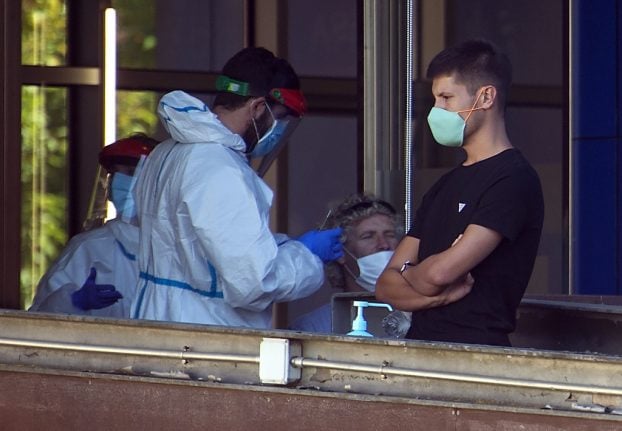Health ministry data showed 2,489 new cases were diagnosed in the past 24 hours.

The chart above shows the number of infections recorded since the start of the pandemic in Spain while the one below shows in more detail the number since June when confinement ended.

It brings the total number diagnosed since the pandemic hit Spain to 462,858.
The official death toll has risen to 29,094 with 141 Covid-19 deaths recorded in the last week, five people in the last day.
Madrid has recorded the highest number of cases (554), representing 25 percent of cases across Spain, followed by the Basque Country (394), Andalusia (308) and Canary Islands (301).
✍️Actualización de datos de #COVID19 en España https://t.co/mioSlbh186
✍️Materiales de información sobre el #coronavirus https://t.co/3JRZJojRhC #NoLoTiresPorLaBorda pic.twitter.com/3QSOELDRF2
— Ministerio de Sanidad (@sanidadgob) August 31, 2020
“These figures are still high, but must be contextualized in a case detection framework, many of which are asymptomatic,” Chief epidemiologist Fernando Simón explained.
READ MORE 'Stay home': Valencia town returns to lockdown after spike in cases



 Please whitelist us to continue reading.
Please whitelist us to continue reading.
Member comments